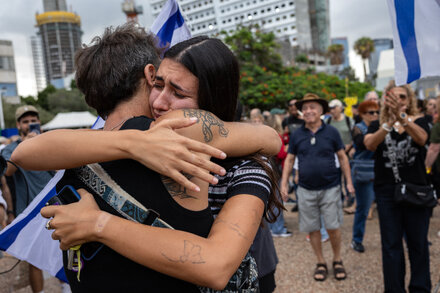
JERUSALEM – A wave of palpable relief has swept across Israel following the announcement of a landmark agreement, widely believed to involve the release of hostages and a cessation of hostilities. While families of those held captive and the general public express profound gratitude for the breakthrough, a growing chorus of voices is beginning to question the protracted nature of the negotiations and the government’s handling of the crisis.
The deal, details of which were officially confirmed earlier today, is understood to involve a multi-stage exchange of Israeli hostages for Palestinian prisoners, coupled with a temporary ceasefire in Gaza and an increase in humanitarian aid deliveries. Celebrations erupted in various parts of the country as the first groups of freed individuals began to cross into Israeli territory, marking an end to months of agonizing uncertainty for many families.
“It feels like we can finally breathe again,” shared Sarah Levy, whose cousin was among the released. “The tears are of joy, but also of exhaustion. We’ve lived in a nightmare for too long.”
However, beneath the immediate euphoria, a more critical sentiment is emerging. For many Israelis, the agreement, while welcomed, prompts a painful retrospective on the extended period of captivity for their loved ones and the perceived delays in reaching a resolution. Public discussions on social media and in the streets reflect a mix of relief and frustration, with some demanding accountability for what they view as a drawn-out process.
Questions Over Negotiation Timeline
Political analysts and opposition figures have begun to scrutinize the timeline of the negotiations, questioning whether different strategies or earlier concessions could have secured the release of hostages sooner. The government has consistently maintained that negotiations were complex, conducted under difficult circumstances, and focused on ensuring the best possible outcome for national security while prioritizing the return of its citizens.
“While we are overjoyed for every family reunited, it is our duty to ask why it took so many months to achieve this,” stated Knesset Member David Ben-Ari, a prominent opposition voice. “Was every avenue explored? Were all necessary steps taken with the urgency required? These are questions the public deserves answers to.”
Government officials, including Prime Minister Benjamin Netanyahu, have reiterated their commitment to the safe return of all captives and have emphasized the delicate balance between negotiation and military pressure. In a televised address following the deal’s confirmation, the Prime Minister acknowledged the public’s pain and assured citizens that every effort was made to bring the hostages home.
The agreement is expected to provide a temporary respite from the intense conflict, allowing for humanitarian access and potentially paving the way for further diplomatic efforts. Yet, as the initial relief settles, the national conversation appears poised to shift towards an examination of the strategies employed and the political consequences of the lengthy wait.
Source: Read the original article here.





